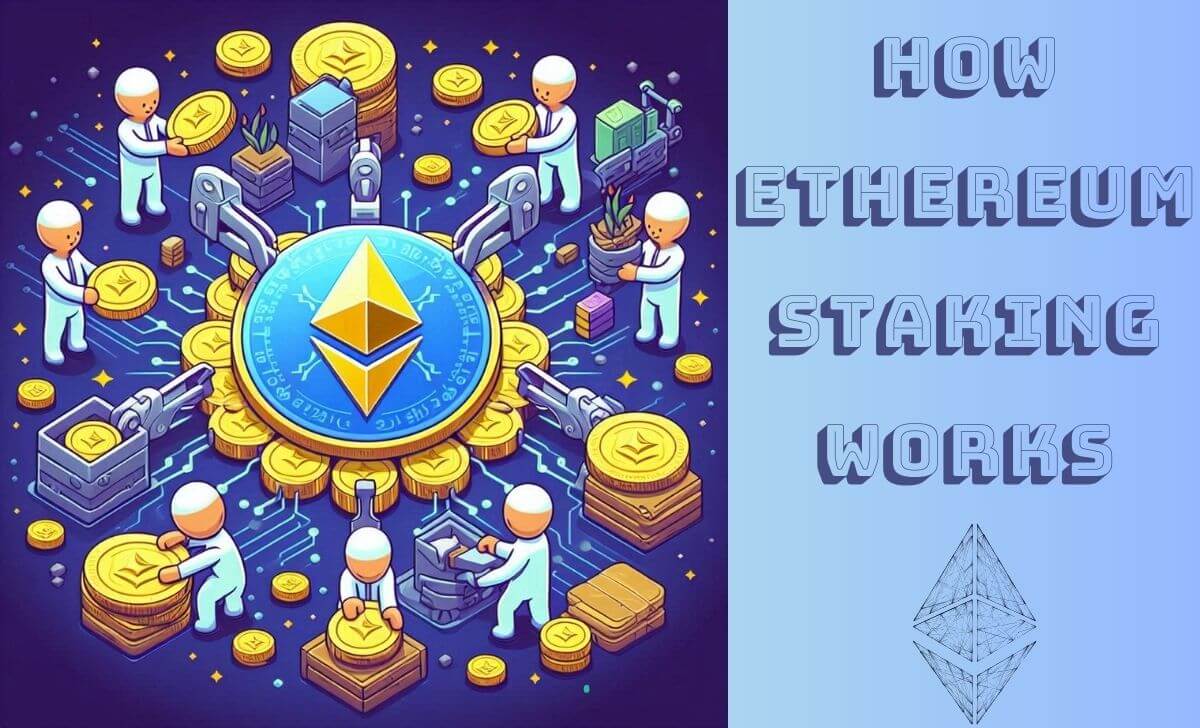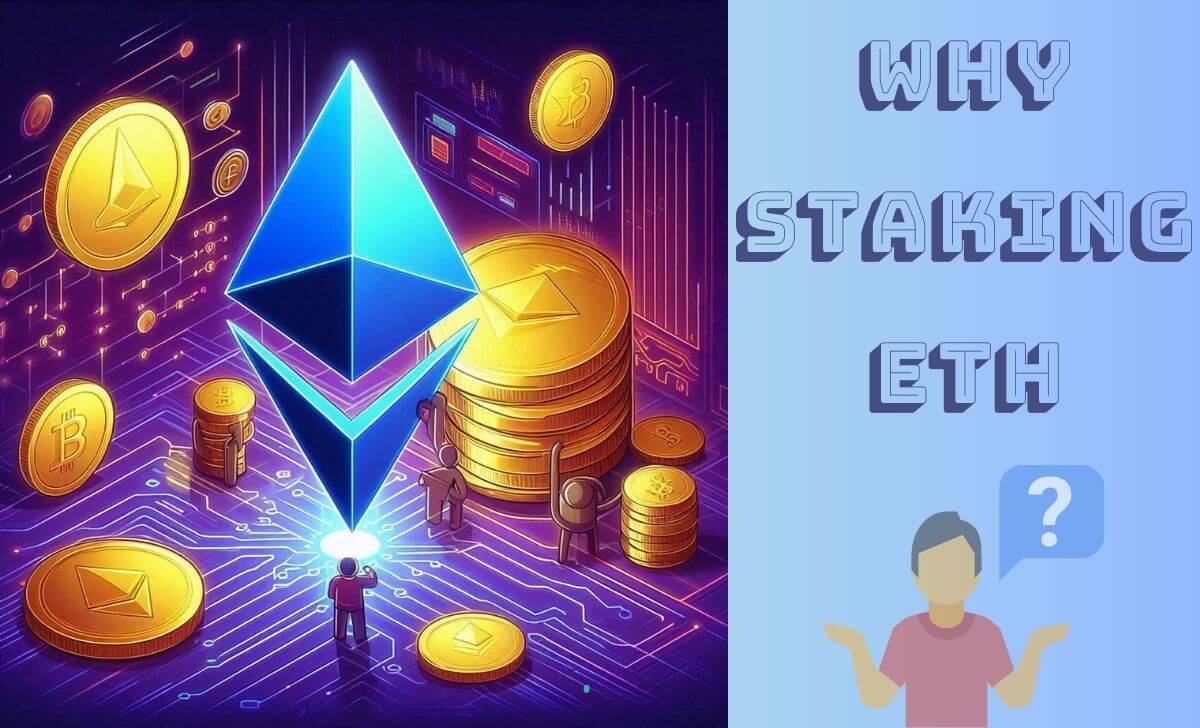ETH staking rewards are an integral part of the Ethereum 2.0 revolution. Staking ETH is not just an investment, but also an act of contributing to the development of the world’s largest blockchain ecosystem.
But how can you make the most of this opportunity and receive worthy rewards? Join AZCoin to learn more about ETH staking rewards and why you should participate today.
What are ETH staking rewards?

ETH staking rewards are the benefits users receive for participating in the process of securing and validating transactions on the Ethereum 2.0 network (also known as The Merge). Instead of simply holding ETH, users will lock a certain amount of ETH for a specific period of time to contribute to the maintenance of the network. In return, they will receive rewards in the form of ETH.
How Ethereum Staking works

Ethereum has moved from PoW to PoS consensus mechanism after the Merge event. In the Ethereum Staking model, users can stake their ETH to become validators, who are responsible for validating and securing transactions on the Ethereum network. The Ethereum Staking process requires users to lock up a specific amount of 32 ETH to activate a validator, enabling them to perform tasks such as storing data, processing transactions, and adding new blocks to the chain.
Staking users will be rewarded with newly issued ETH and a portion of the network’s transaction fees. These rewards come from two main sources:
- Execution layer rewards: Validators receive these rewards when they propose new blocks. However, block proposals are a random and infrequent event, usually occurring every 64 days. These rewards depend on transaction costs and fees, such as Priority Fees and Maximal Extractable Value.
- Consensus layer rewards: Validators receive these rewards when they validate blocks and participate in the consensus committee. These rewards occur more frequently and are decided based on the validator participation rate.
Why staking ETH?

Staking ETH has many attractive benefits:
- Earn rewards: When you stake ETH, you will receive rewards in the form of new ETH. This reward is given for helping the Ethereum network reach consensus.
- Network security: Staking helps increase the security of the Ethereum network. When more ETH is staked, it becomes more difficult to control the majority of the network, thereby reducing the risk of attack.
- Energy efficiency: Compared to the previous PoW mechanism, staking ETH using the PoS mechanism consumes much less energy. This makes Ethereum more sustainable and environmentally friendly.
- Accessibility: You don’t need powerful hardware to stake ETH. You can stake from a regular personal computer or laptop.
- Increased decentralization: Staking increases the decentralization of the Ethereum network, as more people can participate in the process of validating transactions and securing the network.
For those interested in staking ETH and exploring other opportunities, AZcoin – best crypto exchange 2024 offers a range of services and resources to support your crypto activities.
Factors affecting ETH staking rewards

ETH staking rewards can be affected by a number of factors, such as:
- Total ETH staked: As more ETH is staked, the rewards per validator may decrease as the rewards are shared among more people.
- Network participation: Higher participation can lead to lower rewards per participant, as the rewards are divided among more validators.
- Staking duration: The length of time you stake ETH also affects the rewards. Staking for a longer period of time can result in higher rewards.
- Network inflation rate: Ethereum’s inflation rate also affects the staking rewards. Higher inflation can lead to higher rewards, but can also decrease the value of ETH.
- Validator performance: Validator performance is also important. If your validator performs well and doesn’t encounter errors, you will receive higher rewards.
Additionally, platforms like StakeStone can provide tools and resources to help optimize your staking strategy and potentially improve your overall rewards.
Comparing ETH staking rewards to Yields from DeFi
ETH staking rewards are distinctly different from yields from DeFi platforms like Uniswap or Compound Finance. When you stake ETH, you retain ownership and control of your assets and receive rewards for securing the network. Meanwhile, yields from DeFi liquidity pools require you to deposit ETH into smart contracts and can be exposed to risks like impermanent loss and smart contract vulnerabilities.
Staking ETH provides a way to participate in blockchain consensus without the risks associated with depositing assets into smart contracts. This protects you from the potential problems of DeFi that focus on profiting from transaction fees.
Notes when participating in ETH staking rewards
When participating in ETH staking rewards, you should note the following points to ensure safety and optimize rewards:
- Choose a reputable staking platform: Make sure you choose a reputable staking platform or service. Research the platform thoroughly before sending your ETH.
- Wallet security: Use a highly secure hardware wallet or software wallet to store your ETH. Avoid using online wallets or wallets on exchanges to reduce the risk of being hacked.
- Understand ETH locking: When you stake ETH, that ETH will be locked for a certain period of time. Make sure you don’t need to use that ETH during this time.
- Monitor validator performance: If you run a validator yourself, make sure it’s running continuously and without problems. Poor performance can lead to loss of rewards or even penalties.
- Update software regularly: Make sure your staking software is always updated to the latest version to avoid security vulnerabilities.
- Understand the risks: Like any investment, staking has risks. Be aware of these risks and only stake ETH that you can afford to lose.
- Transaction fees: Note that there may be fees associated with staking, such as transaction fees or staking platform service fees.
Conclusion
Above is an overview of ETH staking rewards, including how they work, the benefits, and the drawbacks of staking ETH. Hopefully this information will help you make an informed decision about whether or not to participate in ETH staking and choose the method that best suits your needs.

I’m Jessi Lee, currently living in Singapore. I am currently working as a trader for AZCoin company, with 5 years of experience in the cryptocurrency market, I hope to bring you useful information and knowledge about virtual currency investment.
Email: [email protected]











